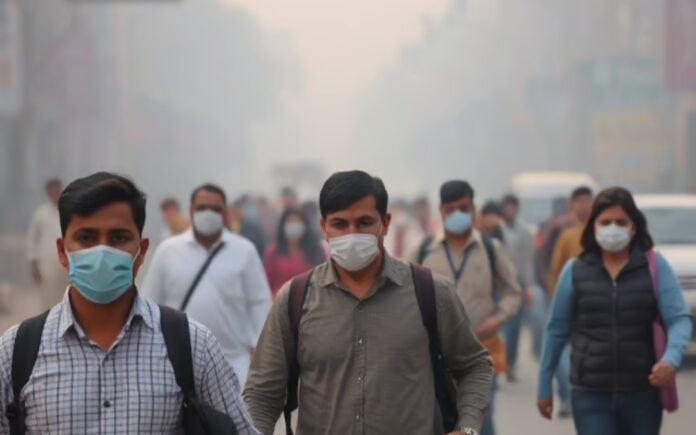The Commission for Air Quality Management (CAQM) has lifted the restrictions under Stage-III of the Graded Response Action Plan (GRAP) following a significant improvement in Delhi’s air quality. This decision, made public on January 17, came after the GRAP Sub-Committee observed a sustained improvement in the city’s Air Quality Index (AQI), which moved from the “Severe” category to “Very Poor.”
On January 16, Delhi’s AQI was recorded at 302, falling below the 350 threshold that triggers Stage-III actions. The CAQM noted that favorable meteorological conditions, including strong winds, had contributed to this positive change. However, the commission has decided to keep Stage-I and Stage-II measures in place for continued air quality monitoring to prevent any further deterioration.
The order issued on January 17 stated, “The AQI of Delhi has been continuously improving and has been recorded as ‘Very Poor’ on 17.01.2025, which is about 61 AQI points below the benchmark set by the Hon’ble Supreme Court for invoking Stage-III.”
Despite the rollback of Stage-III curbs, the CAQM emphasized the need for sustained vigilance, especially in winter, when weather conditions can rapidly worsen air quality. “Construction and demolition sites that were issued closure orders for violations cannot resume operations without explicit permission,” the CAQM order further mentioned.
The Stage-III measures were implemented on January 15 after Delhi’s AQI breached the 350 mark, as a precautionary step to prevent pollution spikes. With the improvement, CAQM also revoked Stage-IV measures, earlier enforced for the “Severe+” AQI, for Delhi and the National Capital Region (NCR).
While Stage-III actions are no longer in place, the CAQM continues to urge citizens to adopt responsible practices to help minimize pollution. The Sub-Committee will keep monitoring air quality and update measures as necessary based on forecasts from the Indian Meteorological Department (IMD) and the Indian Institute of Tropical Meteorology (IITM).


